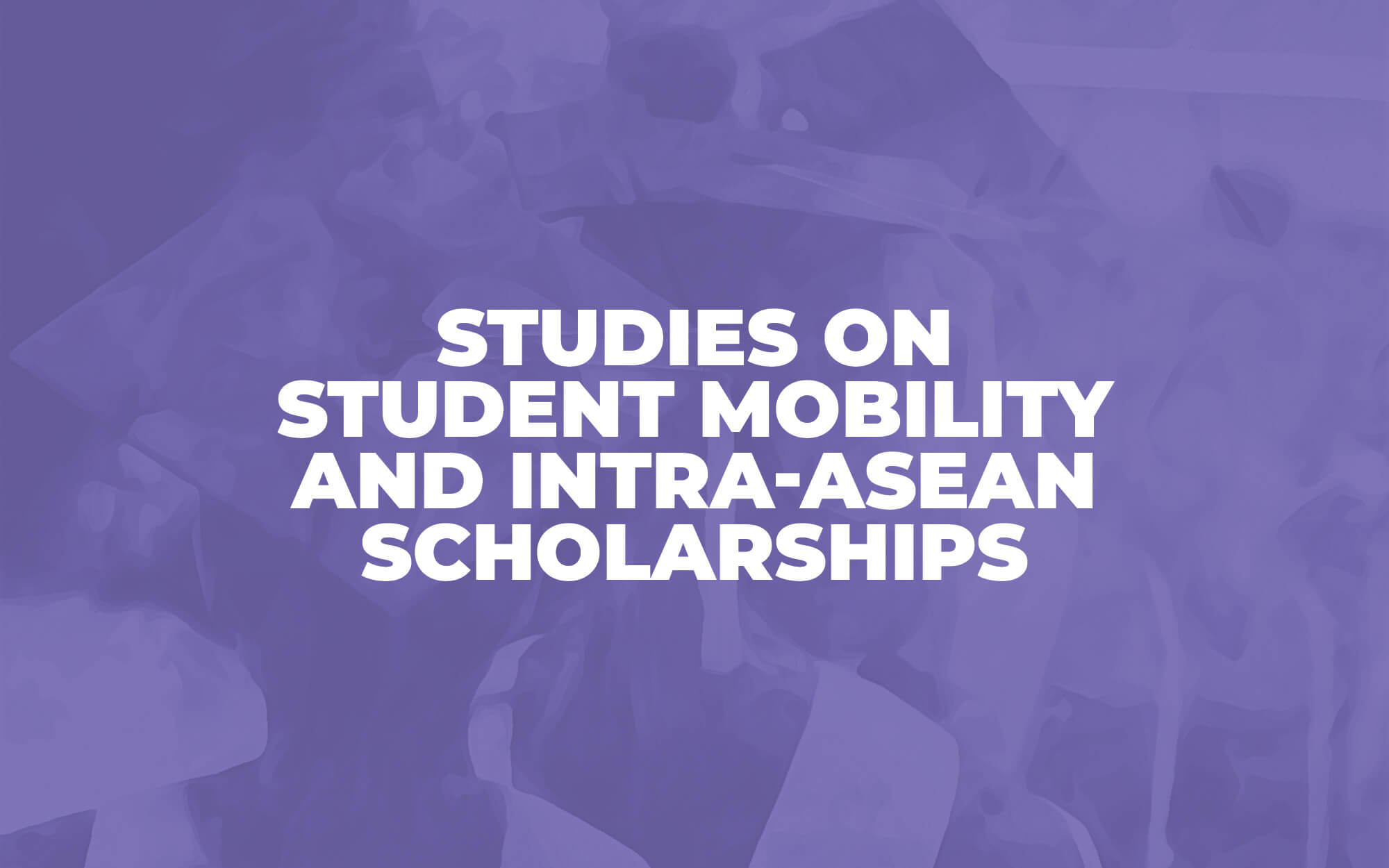



The COVID-19 pandemic has accelerated digital transformation. Stringent social distancing measures are changing lifestyles and work arrangements. Businesses and governments have to rely even more on technologies to provide information, goods, and services to meet shifting demands from the public.
In the past few months, how much more often have you ordered groceries and food through a mobile app? Have you shifted to online payments and banking? How many video meetings and messaging apps have you downloaded?
Data indicate we were already in a “disrupted stream,” even before the pandemic. According to a media consumption study by Nielsen, people spent about 90 per cent of their mobile time using apps. This may account for the more than 200 billion apps downloaded in 2019, according to the State of Mobile 2020 report.
In Thailand, motorcyclists in colourful jackets line up in front of restaurants to pick-up and deliver food ordered online. A Bangkok Post article reported that there were about 120,000-140,000 deliveries per day in 2018 which could scale up to about 3 million per day in the next five years.
Fintech is also expanding in Thailand and the rest of ASEAN. In the digital banking study conducted by McKinsey & Company, use of mobile banking in ASEAN increased significantly over the past years and is now much more widespread than in most developed Asia. The Bank of Thailand reports that the value of mobile banking transaction in Thailand had increased twenty-fold during the past five years. This development may have led to the planned closure of some 200 physical branches of one of Thailand’s major banks as part of its digital transformation strategy, according to news reports.
In recent years, there has already been a significant shift in business practices and services generated by digital technology—the so-called digital disruption. This in turn, changed people’s expectations towards business, society, and government. Whether from the point of view of customer or citizens, demands in the digital age cover the aspects of speed, personalisation, transparency, comparison and clarification, and omni-channels.
COVID-19 has created a “new normal,” with telecommuting, online education and fintech, and other services required to live through the pandemic.
Here comes the importance of “agility.” Digital disruption means significant transformation in the ways we think and operate, not just in businesses, but also in governments. The civil service is no different.
Civil service systems in many countries have been growing through the influence of scientific management approach, with emphasis on hierarchical organisational structure and specialisation-oriented human resource management. However, this rigid management platform cannot survive in a time when digital transformation will be pushed to an extreme.
New demands from citizens require policy outputs that come from the real synchronisation of thoughts, ideas, and implementation that cuts across the boundaries of divisions, departments, and ministries of the civil service.
The ASEAN Cooperation on Civil Service Matters (ACCSM) is a key sectoral body of the ASEAN Socio-Cultural Community, in the promotion of effective and efficient civil service. ACCSM realises the rapidly changing digital landscape forces civil service to embrace the agility imperative, in order to cope with the change.
Thailand, as the 20th ACCSM Chair, has come up with the theme “Accelerating Agile ASEAN Civil Service” as the focused agenda of the ACCSM Meeting. Even before the pandemic, we recognised that digital transformation is imperative. In the ASEAN Statement on Promotion of Good Governance and Acceleration of an Agile Civil Service in a Digital Economy, we affirm commitments to build capacities of the ASEAN civil service sector to respond flexibly, effectively, and promptly to the intense period of digital transformation.
The statement calls for ASEAN Member States to concretise the concept of agility in order to enhance the capacities and capabilities of our civil service by improving our policies, processes, systems, and change-ready mindsets. The statement also emphasises key platforms and channels to implement ACCSM’s agility strategic intention. These include collaboration with ASEAN resource centres, the ASEAN Network of Public Service Training Institutes, as well as ASEAN sectoral bodies, ASEAN dialogue partners, and international organisations.
Moving in the same strategic direction of ACCSM, the Office of the Civil Service Commission of Thailand, as the government’s central human resources agency, is also driving its policy to support departments and officials in dealing with digital transformation. To effectively ride the wave of digital transformation, we believe the following key drivers are needed:
A – Anticipation and Awareness
It is necessary to understand the dynamics of the digital disruption especially their potential effect on the departments’ mission. Any change or transformation will not happen if someone does not foresee coming problems or challenges. Anticipated awareness in the workplace can serve as a starting point of digital transformation and organisation’s agility. For such an awareness to occur, several components are needed. They are, and not limited to, ability to observe what is happening in your policy areas or other policy spheres that might affect your mission/strategy; ability to identify irregularity of the policy outputs/outcome; quality relevant data; effective discussion within department and with key stakeholders; and, more importantly, commitment of departments (and their leaders in particular) to deliver quality service to the citizen. Through dialogue with civil service leaders, the Office of the Civil Service Commission has found that executives of leading departments all possess this anticipated awareness characteristic and use it to drive their digital transformation strategy.
G – Growth Mindset
In the midst of uncertainty is the opportunity presented by technology disruption to build a culture of learning and development. The concept of “fail fast, learn fast” seems to be suitable, but what must be underscored is the “growth mindset.” In the book, Mindset: The New Psychology of Success, Dweck distinguishes mindset into two major types: a fixed mindset and a growth mindset. If you have a fixed mindset, you see that abilities, skills, and potential are unchangeable; and that feedback equates to criticism. On the other hand, in a growth mindset, you are willing to embrace failure and challenges as opportunities to grow. In past decades, failures in policy and implementation were hardly part of the civil service sector’s vocabulary. Through the growth mindset approach, the Office of the Civil Service Commission is now promoting “HR-Lab” as a tool to explore and calibrate suitable civil service HR policy and practice to answer our new landscape.
I – Infinite Perseverance
A growth mindset can be actualised with perseverance. Solutions never come easy. Brainstorming, convincing, getting out of the comfort zone, working with the budget, and drafting new laws and regulations to fit new policies are actions that will make proponents of transformation raise the white flag. Perseverance itself depends on several factors, including the ability to understand that resistance to change is the norm for any transformation; clear but flexible transformation milestones and positive thinking about change (which are small-step improvements worth celebrating); and strong and supportive teamwork.
L – Leverage partnerships
Dealing with disruption is a never-ending story. It requires massive amounts of coordination and collaboration, both within and across boundaries, and linking of efforts at the local, national, regional, and global levels. Leadership at all levels of the organisation is an indispensable factor for civil service digital transformation. Successful departments have top leaders that create opportunities for change, and putting themselves as one with the team. They facilitate the expansion of strategic networks across different sectors of society. They ease up on their authority. They allow mid-level leaders and team members to work flexibly with the organisation’s partners and stakeholders, and come up with innovations.
E – Employ Tech Wisely
Today, everyone appears to be enthusiastic about incorporating technology into their organisation’s strategy implementation. As transformation challenges vary from organisation to organisation, it is important to understand that certain technological solutions may not be a fit for all. It is therefore easy to fall into technology trap, where the luxury of ready-made software and applications overshadow actual practical usefulness for the organisation. Like the transformation strategy, new technology too needs to be customised to answer specific policy and operational needs. The Office of the Civil Service Commission found that, through clear problem analysis of departments and close collaboration with solution developers in both government and business sectors, it is possible to find technology- based solutions that are effective and economical.
In summary, the ACCSM is well aware of the need for digital transformation and agility in the civil sector so that it can improve its responses and services to citizen, while ensuring the sound implementation of good governance principles. Thailand’s Office of Civil Service Commission is working closely with various departments and other civil service commissions to identify key drivers that will promote agility and transformation.
Currently, several civil service human resource systems and components are being analysed and potentially modified to support the transformation. The focused reform areas include: remodeling employment and compensation regimes; performance management; merit promotion; and performance and potential development.
ACCSM embraces the concept of agility through its statement during the 20th ACCSM Meeting, and Thailand is determined to enhance agility of its civil service, as well as to collaborate with all ASEAN Member States to sustainably implement digital transformation.
One of the myths about agility is that it is applied exclusively to the business sector. In fact, the civil service sector too needs to be agile in order to effectively respond to the needs of citizens, as we all learn to live in a world that has markedly changed after COVID-19.








